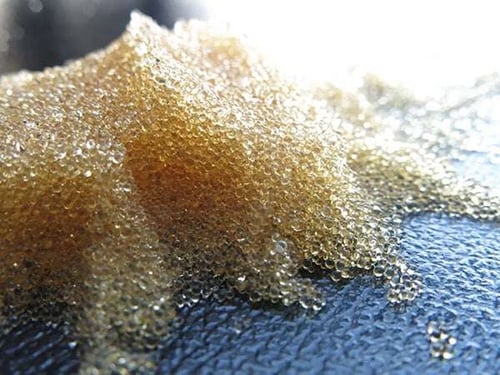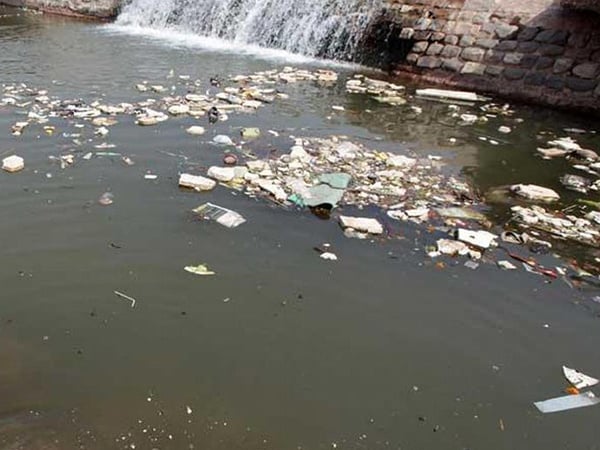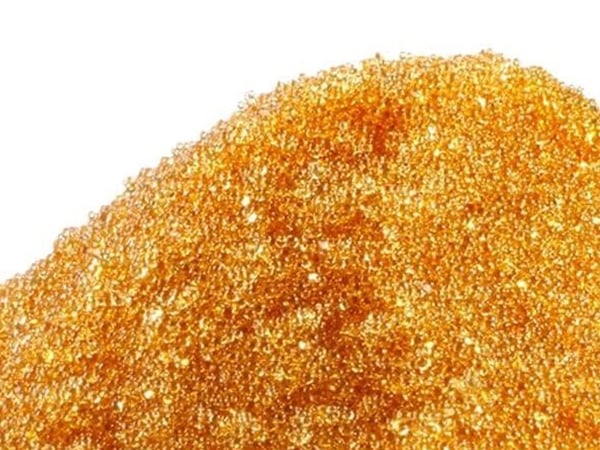Water treatment is not only essential for meeting daily needs but also vital in supporting various industrial and commercial operations. Amidst the challenges faced, such as hard water or hard water problems caused by high content of minerals such as calcium and magnesium, modern water treatment technologies offer effective solutions. Ion exchange resins, with their ability to exchange hardness-causing mineral ions with other, less harmful ions, are emerging as one of the most effective innovative solutions.
The presence of excess minerals in water not only disrupts processes and reduces equipment efficiency but can also affect the general quality of life. Therefore, an in-depth understanding of how ion exchange resins work, along with the challenges that may be faced as well as solutions to overcome these challenges, is essential.
This article aims to discuss how ion exchange resins work, along with the challenges that may be faced as well as solutions to overcome these challenges.
This article aims to cover all those aspects, providing insights into how ion exchange resins can be utilized to optimize water treatment processes, ensuring better water quality for domestic, industrial, and commercial use.

What is Ion Exchange Resin?
Ion exchange resin is a polymer material that is very effective in the water treatment process, especially in overcoming the problem of hard water. These resins work on the principle of ion exchange, where calcium and magnesium ions that are the main cause of hard water are exchanged for other ions, such as sodium or potassium, which do not cause hardness.
There are two main types of ion exchange resins.
There are two main types of ion exchange resins: cationic ion exchange resins, which exchange positive ions, and anionic ion exchange resins, which exchange negative ions. The use of ion exchange resins is very broad, ranging from household applications such as water filters, to industrial scale in production processes that require clean and soft water.

Why is Hard Water a Problem?
Hard water can pose a variety of problems both in everyday use and in industrial applications. In households, hard water can cause calcium and magnesium buildup on appliances, such as boilers and washing machines, ultimately reducing the efficiency and lifespan of those appliances. In an industrial context, hard water can affect the quality of the final product, disrupt production processes, and increase equipment maintenance costs. In addition, hard water can also affect health, such as making skin dry and hair damaged due to the use of hard water for bathing.
Not only that, hard water can also cause problems in heating systems, increasing energy consumption due to scale buildup in water heaters and boilers. Scale formed from hard water minerals can insulate heating elements, requiring more energy to heat water to the desired temperature, increasing energy costs. In the long run, this buildup can cause serious damage to equipment, shorten its lifespan, and demand replacement or expensive repairs. Therefore, addressing hard water issues is not only important for maintaining operational efficiency and sustainability, but also for reducing unnecessary expenditures in equipment maintenance and energy consumption.

How Ion Exchange Resin Works in Treating Hard Water
Ion exchange resin treats hard water through a process called ion exchange. In this process, hard water passes through a column containing ion exchange resin. The calcium and magnesium ions in the water will be attracted and bound to the resin, while the resin will release sodium or potassium ions into the water. This process results in water that is softer and ready to be used for daily use or industrial processes. The effectiveness of ion exchange resins in treating hard water makes it a popular and widely relied upon solution in various water treatment applications.
Furthermore, ion exchange resins can be used to treat hard water.
Furthermore, ion exchange resins can be customized to meet the specific needs of water treatment, by using specialized resins targeted at removing specific contaminants other than calcium and magnesium ions. This includes the removal of heavy metals, other specific ions, or even organic contaminants, making this technology highly flexible and valuable in a variety of water treatment settings. The use of ion exchange resins not only improves the quality of water for consumption and daily use, but also allows industries to meet stringent regulatory standards regarding wastewater quality.
In addition, advancements in ion exchange resins have made it possible for industries to meet the stringent regulatory standards regarding wastewater quality.
In addition, advances in ion exchange resin technology have led to the development of resins with higher exchange capacities and longer service lives, thus reducing the frequency of regeneration and maintenance. This means a reduction in the use of chemicals for regeneration and, as a result, a reduction in the environmental impact of the water treatment process. Thus, the use of ion exchange resins not only provides an effective solution to hard water problems but also supports sustainable and environmentally friendly efforts in water resource management.
Conclusion
Tackling hard water issues requires an effective and efficient approach, where ion exchange resins play a key role. With regular maintenance, appropriate regeneration, and proper resin selection, these challenges can be overcome, improving water quality for domestic and industrial use. For customized solutions tailored to your needs, Beta Pramesti Asia offers a wide selection of high-quality ion exchange resin products. Contact us via Whatsapp or e-mail for consultation and technical support to maximize your water treatment.
